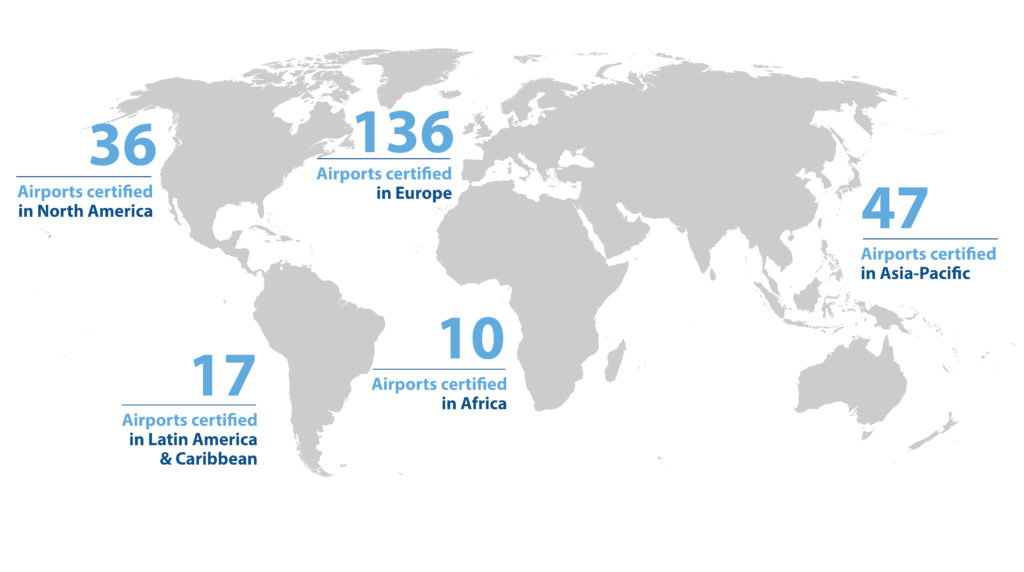Members of ACI World’s Airport Carbon Accreditation (ACA) program have saved nearly 350,000 tons of CO₂ between them in the last year.
Speaking at the Global Sustainable Aviation Summit in Geneva, Switzerland, Angela Gittens, director general, ACI World, commented, “Airports around the world recognize that climate resilience and climate action are two sides of the same challenge. With 48 new airports in the program this past year, ACA has never seen such annual momentum.
“The 246 airports now accredited across the four levels of the program welcomed 3.3 billion passengers last year which represents 44% of global passenger traffic.
“From May 2017 to May 2018, accredited airports succeeded in collectively reducing the CO₂ emissions under their direct control by 347,026 tons. To put that achievement in perspective, it would take more than eight million trees planted over 10 years to absorb the equivalent amount of CO₂.”
With four different levels of accreditation covering all stages of carbon management, ACA is independently administered, institutionally-endorsed and has the support of the United Nations, ICAO, FAA and the European Commission.
According to the program, airports must consider the full extent of the emissions sources under their direct control if they are to reduce their carbon footprint. Investment in more energy efficient lighting and heating, switching to hybrid or electric ground vehicles, on-site renewables, energy management tools and employee behavioral change all have a part to play.
This is further extended when airport operators engage other stakeholders with initiatives such as Airport-Collaborative Decision-Making (A-CDM), Continuous Descent Operations and Time-Based Separation for aircraft.
Dr Fang Liu, secretary general of ICAO, said, “Our efforts to empower aviation to address its carbon emissions rely on the participation of as many actors in the sector as possible. ICAO follows the progress of ACI’s program with keen interest.
“The growing success of ACA – with emissions under the airports’ direct control being reduced by 5.3% in the past year – is worthy of heartfelt congratulations to all involved.”
Carbon neutral airports at Level 3+ of the program have to provide evidence of undertaking all the actions required (mapping their emissions, reducing them and engaging others on the airport site), before investing in responsible carbon offsets. The 44 carbon neutral airports currently in the program offset 672,000 tons of CO₂ in residual emissions between May 2017 and May 2018.

